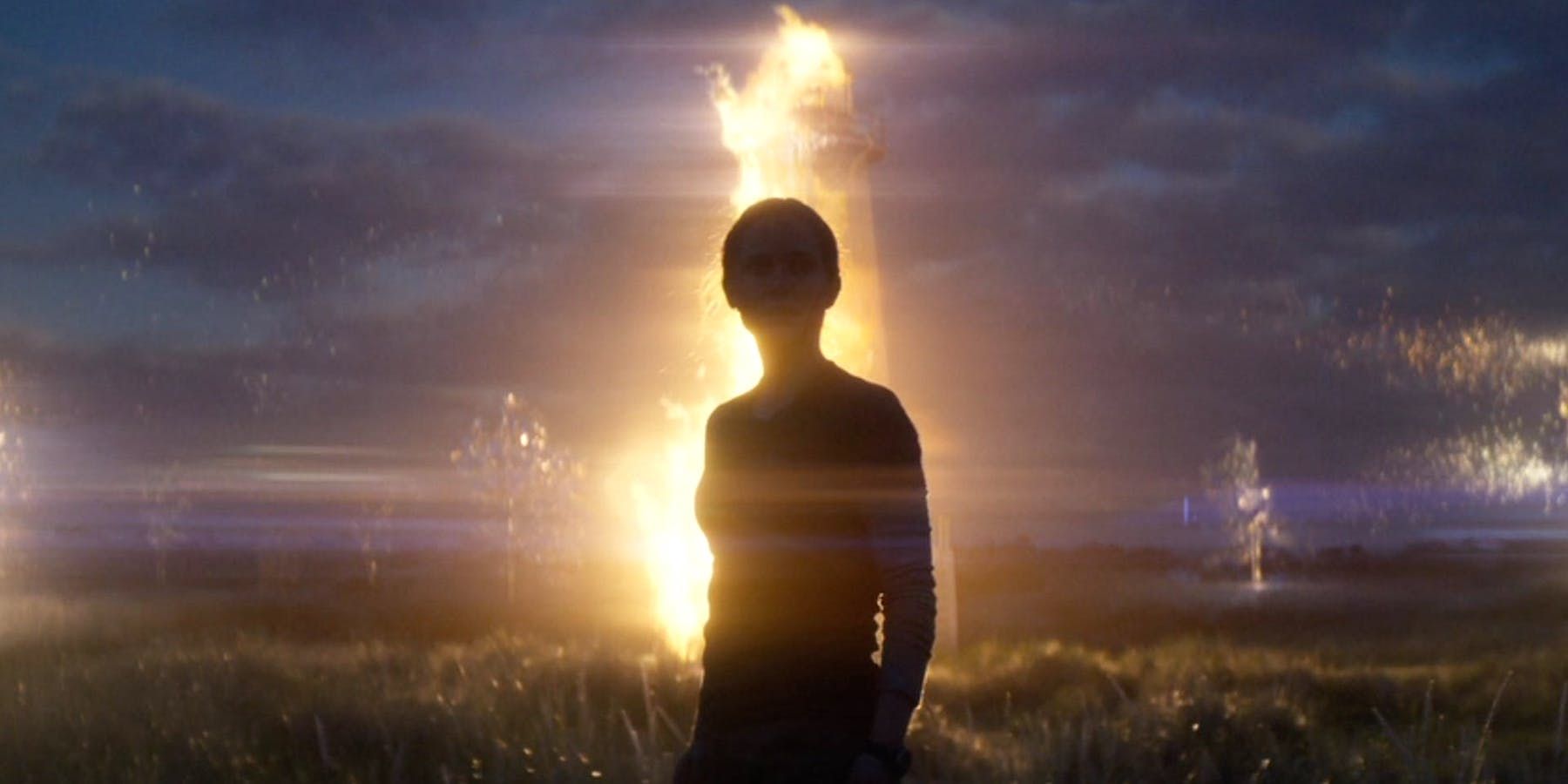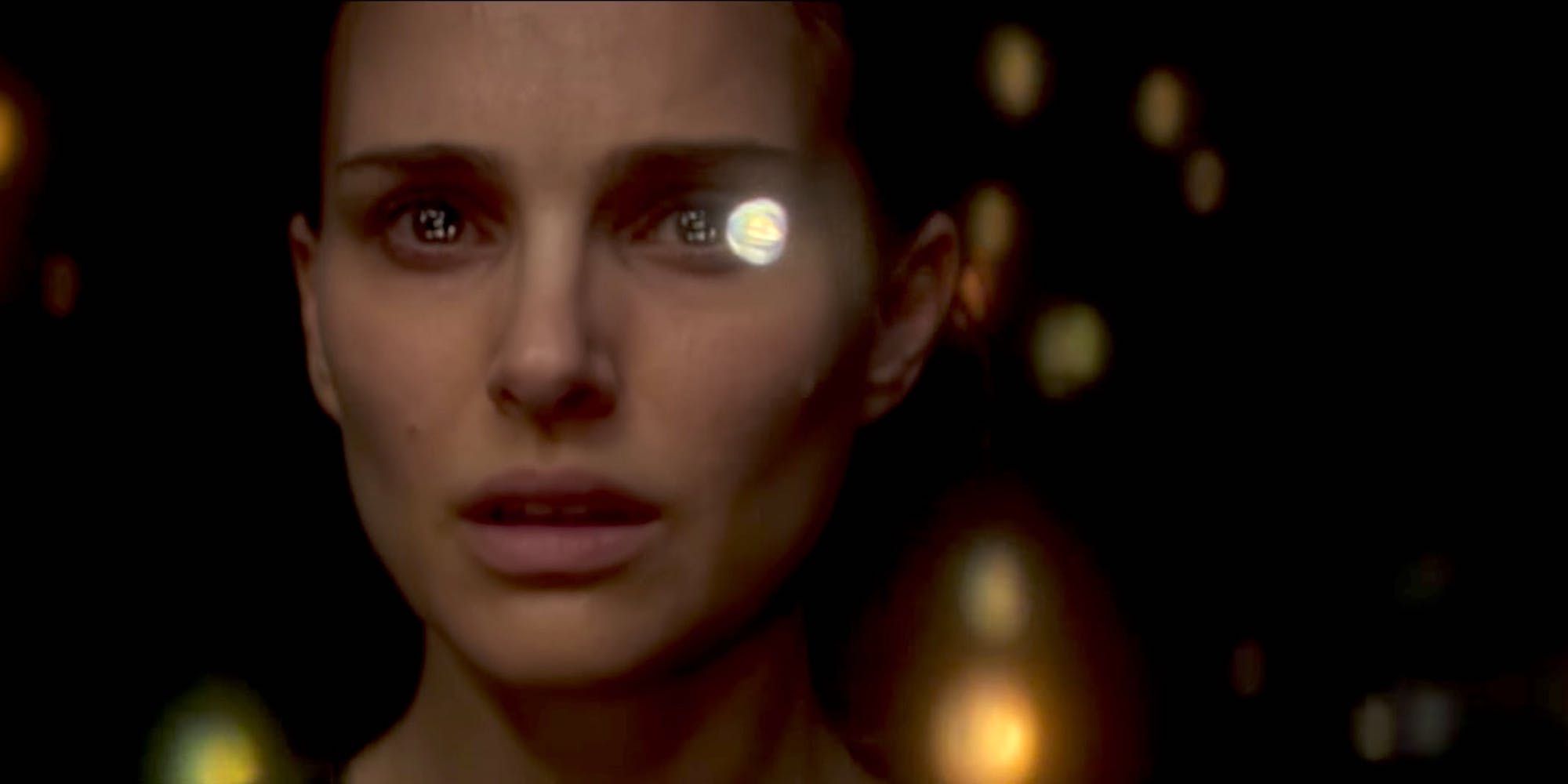Annihilation is full of the ambiguous, philosophical musings of director Alex Garland of Ex Machina and, more recently, Devs fame, but the film's ending is perhaps the crowning moment of the narrative's dense, abstract ideas. However, Garland had written another version of events in an original draft of the script that changes the dark implications in the closing moments. Compared to the completed, theatrical version, the unused ending offers a more apocalyptic take on the final outcome.
The film is both a psychedelic, philosophical science-fiction tale and a tense, disturbing cosmic body horror. In turn, the script raises deep questions about the nature of humanity and extraterrestrial life in its explanations about the mysteries of the plot, while the story's lack of explanations makes its audience uncomfortable and panicked through the fear of the unknown. The conclusion to Annihilation is meant to evoke both of these feelings, pondering what elements truly make up human beings while stirring up dread about the characters' ultimate fates.
In the original ending, it is strongly implied that when the protagonist, Lena, reunites with her husband Kane, who is actually a doppelganger that the alien irradiated zone the Shimmer created, she has been changed by her journey. In fact, she may even have been replaced by her own doppelganger that she had just presumably killed. When Kane asks her if she is Lena, she doesn't reply and instead hugs him while her eyes glow, a sign that she is definitely not the same person she was before entering the Shimmer.
Annihilation's Original Script Had A Different Ending
The uncertainty of the genuine identity of Lena and Kane is intentional, perhaps implying that it doesn't actually matter if the characters are extraterrestrial manifestations or not. In Garland's original draft, one of the Lenas still dies, but it is even more ambiguous as to which one. The script explicitly states in the writing that: "There is no clear indication as to which LENA lived, and which LENA died." Furthermore, as Lena and Kane talk to each other, meteors are shown falling from the sky and cracking open to reveal a shimmering core. This means that the alien intrusion has only just begun, and that all life on earth will potentially succumb to the strange effects of the Shimmer.
In the theatrical version, Lena is changed by the Shimmer, despite having killed the alien doppelganger of herself in an explosion. Garland, whose film is often described as a meditation on grief and depression, probably meant to enunciate that the separation between the "real" Lena and her copy is perhaps more superficial than initially thought. The original ending seeks to make this point even more explicit by not even showing that it was the Lena copy that had definitively died. However, the ramifications of Lena's "transformation" are vague in both versions.
The Shimmer can potentially replicate personalities and memories as well as physical forms, as the Kane double seems to be growing sentience and self-awareness at the end of the movie. This makes it more difficult to determine how much the Shimmer has affected Lena, since even the essence of her being may be a creation of the Shimmer. The original ending of Annihilation suggests that the future of the couple doesn't even matter, considering that the rest of humanity will eventually follow the same fate. Despite the differences in the two versions of the script, perhaps the inevitably ever-changing nature of human identity was Alex Garland's main point all along.


